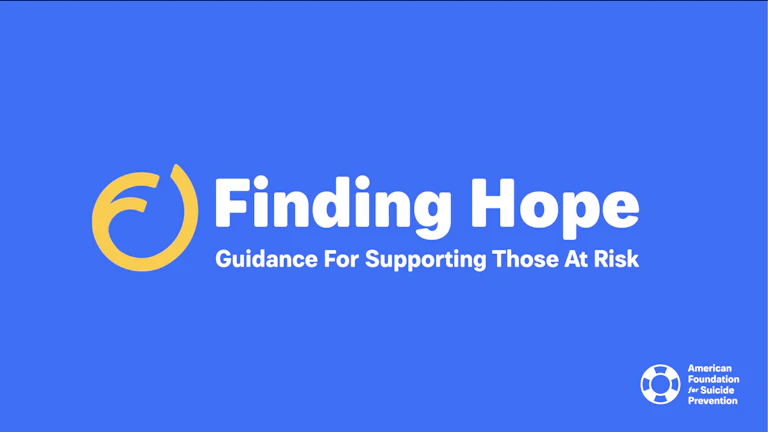Lived experience programs
AFSP has developed Finding Hope: Guidance For Supporting Those At Risk focusing on lived experience.
Finding Hope: Guidance For Supporting Those At Risk
Finding Hope: Guidance for Supporting Those At Risk, is a 75-minute presentation that provides in-depth, practical information for those supporting someone with lived experience. In the context of this program, "lived experience" refers to individuals who have made a suicide attempt and/or experience suicidal thoughts. This program offers education and resources on the process of recovery after a suicidal crisis, warning signs to look out for, planning for safety, and crisis response. It also addresses the different treatment levels in the realm of mental health, and how participants can practice self-care as they support someone in their lives at risk for suicide. This program is offered by trained presenters through AFSP’s chapters and is available for communities virtually and in-person. The target audience for this program is loved ones and supporters of those with lived experience, and community members interested in a more in-depth education program.
To learn more about Finding Hope: Guidance For Supporting Those At Risk, contact your local chapter for more information.



